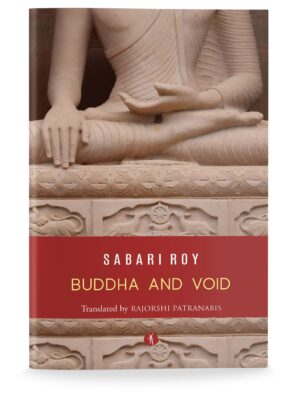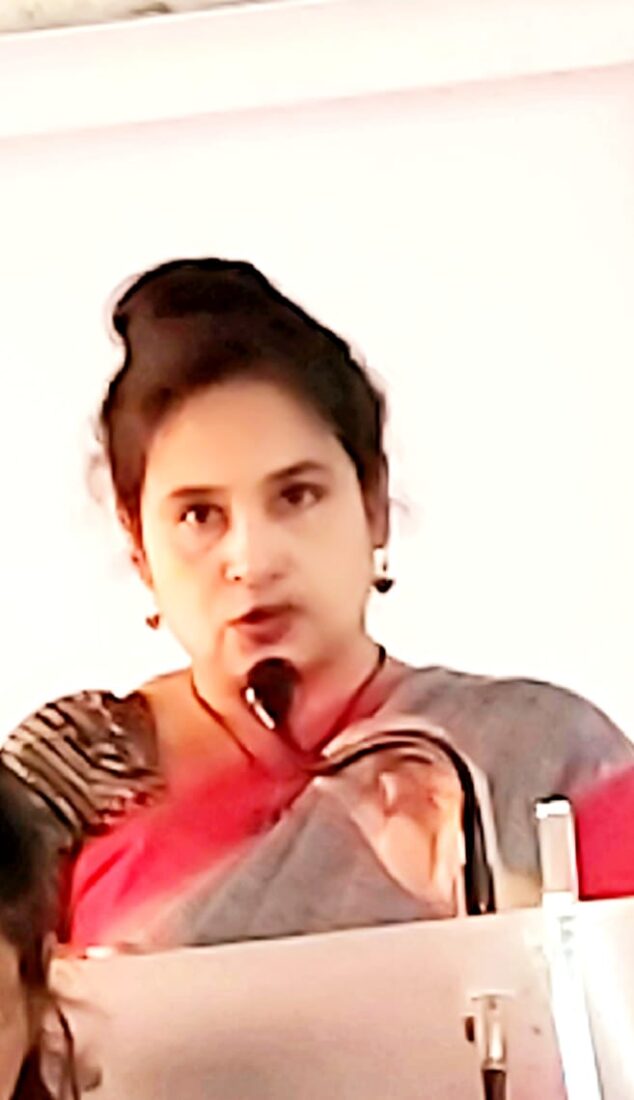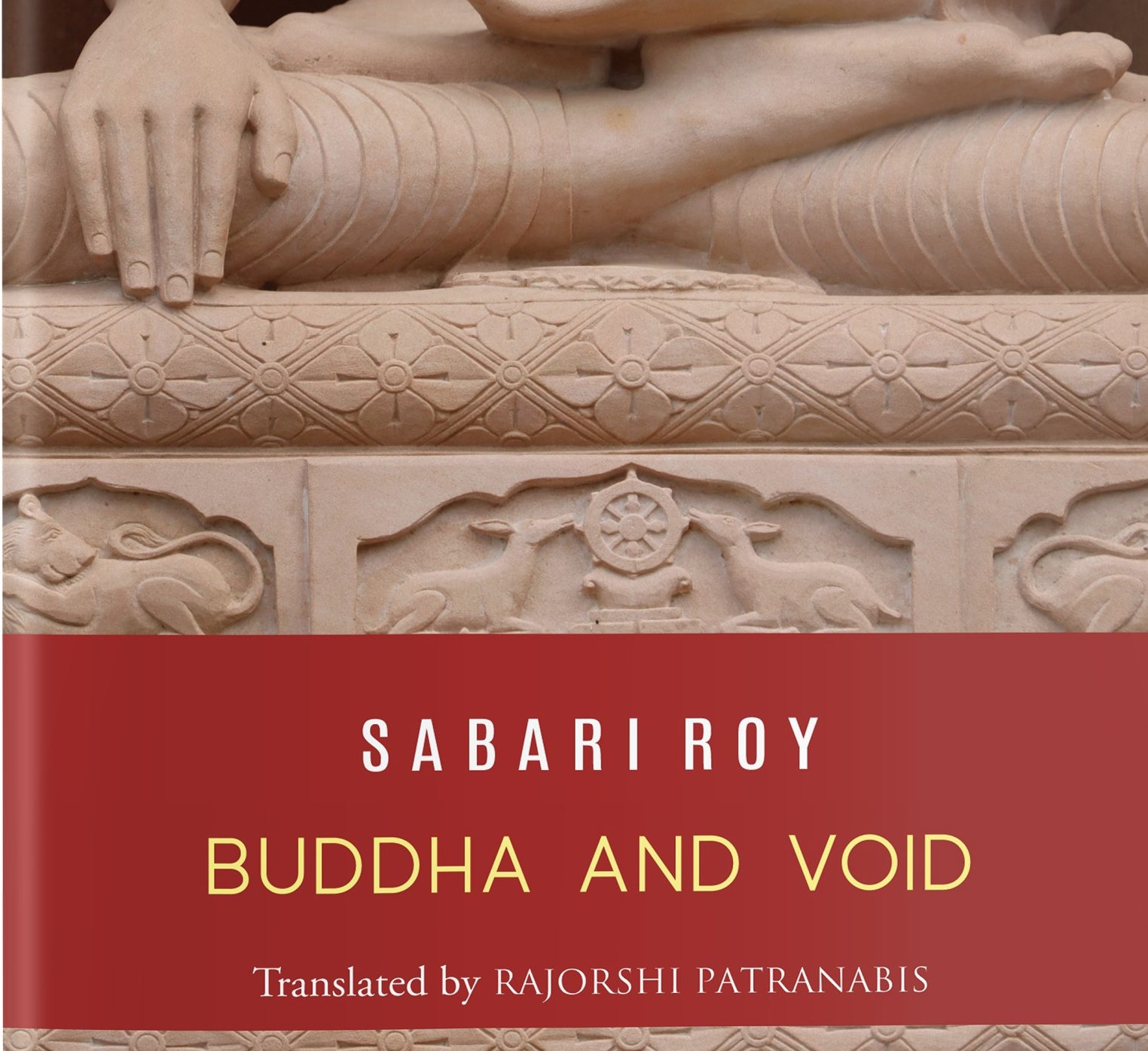
Sabari Roy is an award-winning singer, painter and poet. She has authored eight collections of Bengali poetry, and two collections of Bengali short fiction. Buddha O Shunya is her seventh collection of poetry. Buddha O Shunya has been ably translated into English by multilingual poet, and translator Rajorshi Patranabis as Buddha And Void. The title is intriguing. Buddha leads us to enlightenment. From the perspective of liberation, shunyata is the dexterous means to untangle oneself from the wiry meshes of desire and mundaneness.
The realisation of “shunyata” helps one to come out of the tentacles of attachment and sorrow. It is the adept means towards enlightenment and also the achene of enlightenment. According to Prajna Sutra, “That which is profound has shunyata and non-attachment as its significance. No form or deeds, no rising or falling, are its implications.” The title has a magnetic force that pulls us to explore what is between the two covers of the collection.
The opening poem of the collection stands on the threshold of grief/sickness and prayer—“The body is/ full of crosses/ and circles. / Glass top reflects/ age and sickness;/ intoxication and healing./ Just the two to offer:/ Buddha and the void” by describing and critically scrutinizing key arguments made by the Buddha and developed by later Buddhist philosophers, the poems in this collection investigate the Buddha’s teachings as philosophy: a set of claims—in this case, claims about the nature of the
world and our place in it—supported by rational argumentation and, here, developed with a variety of systematic results. “Bodhi tree grows bonsai. / Ascetism is also restraint. / Mantras are sound/ devoid of any language./ The wheels of prayer/ rotate in the light and wind”. The words are chosen as if they are on the wheels of prayer, and one can feel the resonance deep within. Translating is no mean task, for it tries to capture the subtle nuances of the source text and then metamorphose them into crystals for the target text. The translator has successfully captured the poet’s voice and it reverberates.
Buddha And Void works in concentric circles set out from the innermost realm to the outer world, introduce the reader to fundamental Buddhist concepts and provide a systematic understanding of the concept of shunyata with an existentialist garb—“Man doesn’t need to know/ the airport where/ Siddharta loses His luggage of desire./ He does”. The author creates
opportunities to use the Buddhist philosophies to provide possible answers and to introduce concepts that address, specifically, questions that might arise from the view of philosophy.
The book is intended to be an accessible text for poetry and philosophy novices who are encountering Buddhist ideas for the first time. Buddha and Void elucidate how Roy’s creative genius intertwines with Buddhist philosophy, enriching her oeuvre with spiritual depth and moral resonance. The collection interrogates –can poetry reveal reality? Is philosophical truth a literary artifice? How does the way we think affect what we can know?
In this context, one can refer to Zen Master, Dogen Zenji (11th century) of Japan who observed “To study Buddhism is to study the self, to study the self is to forget the self, to forget the self is to be enlightened by the hundred thousand things.”. Roy has chartered her path of renunciation through love for Siddharta through love for humanity and all things good—“Void is concealed/ cry of grace./ The battleground is ready/ and so are the warplanes./ In the night,/ curfew prevails./ Buddha walks along/ in the deep moonless night.
He heads towards/ the full moon”. In this imaginary conversation with Buddha, the poet realizes that shunyata brings profoundness and solace, and her horizon broadens—she envisions a new world where hatred, anger, and evil are ousted. The poems are evocative and deep. The poet catapults her personal experiences/ imaginary discourses to a universal plane.
The mundane becomes extraordinary, for she becomes Sujata ready with her offering to Siddharta. “With the sweet milk of a black cow, / choru is made at one go; / it tastes of the heavenly ambrosia. / Service from a distance is called Sujata.”
The poet and the translator in this poetry collection have fused into a flute through whose heart the whispering of the imaginary hours with Buddha turns to music. Even after closing the pages, Buddha and Void leaves an indelible mark on the mindscape and resonates with Siddharta and beyond.

Dr. Sutanuka Ghosh Roy
Dr. Sutanuka Ghosh Roy is an Associate Professor of English at Tarakeswar Degree College, The University of Burdwan. She has published widely and presented papers at National and International Seminars. She is a regular contributor to research articles and papers to anthologies, and national and international journals of repute like Text, Journal of Writing and Writing Courses, Australia, Kervan International Journal of Afro-Asiatic Studies, University of Turin, Italy, Fiar, University of Bielefeld, Germany, Muse India, Setu, Lapiz Lazuli, The Times of India, The Statesman, Life and Legends, Kitaab, etc. Her poems have been anthologized and published in Setu, Piker Press, Harbinger Asylum, Teesta Journal, etc. The titles of her books are Critical Inquiry: Text, Context, and Perspectives, Commentaries: Elucidating Poetry, Rassundari Dasi’s Amar Jiban: A Comprehensive Study, Ashprishya (translated into Bengali, a novel by Sharan Kumar Limbale,). “Opera” is her debutant collection of poetry. She is also a reviewer, a poet, and a critic.
